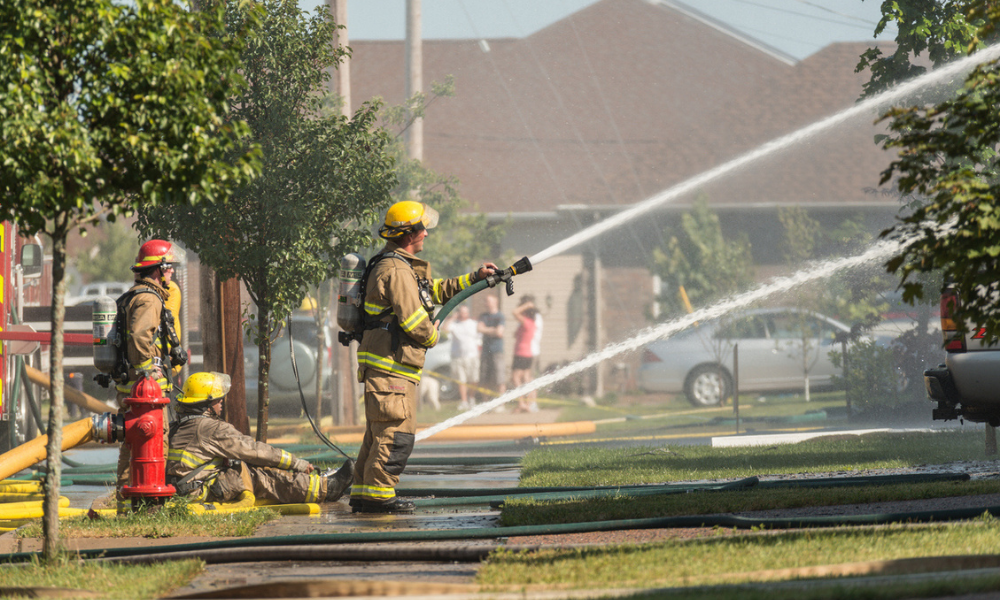Additional coverage to come into effect on July 1

Nova Scotia is increasing presumptive coverage for firefighters in the province.
The province is adding 13 more types of cancers to the six currently covered in the Firefighters Compensation Regulations under the Workers’ Compensation Act. This will be in effect starting July 1.
“Firefighters put their health at risk and their lives on the line every day,” said Premier Tim Houston. “Those who protect us should, in turn, be protected by their government and have access to the workplace injury coverage they need when they need it.”
The 13 types of cancer being added are: esophageal, lung, testicular, ureter, breast, multiple myeloma, prostate, skin, ovarian, cervical, penile, thyroid, and pancreatic. There is existing coverage for bladder, brain, colorectal and kidney cancer, leukemia and non-Hodgkin’s lymphoma.
Coverage will also now include heart attacks that occur within 24 hours of an emergency call.
Exposure to cancer-causing agents in the workplace is estimated to cause approximately 10,000 cancers in Canada each year, according to a previous report. Another study found that firefighters absorb harmful chemicals through the skin.
The Department of Labour, Skills and Immigration staff reviewed multiple studies and consulted firefighters, organizations representing firefighters and municipal representatives throughout the province on revising the regulations.
“This change means that if firefighters develop any of these types of cancers, it will now be presumed to be due to their work,” said Stuart MacLean, CEO, Workers’ Compensation Board of Nova Scotia. “This means they can more easily access financial and health care benefits. It also means that more Nova Scotians will be protected from the impact if they get sick because of their work.”
“These protections are the most significant improvements in firefighter presumptive cancer coverage in Canadian history, bringing Nova Scotia’s firefighters from the least protected in Canada to the most protected,” said Capt. Brendan Meagher, president, Halifax Professional Firefighters, IAFF Local 268. “On behalf of firefighters and our families, I thank the government for keeping their word to Nova Scotia’s firefighters. This is a great day!”
Firefighters with a cancer diagnosis since July 1, 2021, will be able to access the expanded benefits. The province will cover the total liability cost of $80.6 million for four fiscal years: $67.4 million in initial liability costs for municipalities in 2021-22, and $4.4 million in annual liability costs for 2022-23, 2023-24, and 2024-25. Municipalities will not incur additional liability costs until 2025-26.
Volunteer fire departments
Nova Scotia is also investing $3.5 million to help volunteer fire departments, ground search and rescue organizations and First Nations fire departments recover from fundraising losses during the COVID-19 pandemic.
“The pandemic has had a big impact on municipalities and volunteer fire departments,” said Premier Tim Houston. “Firefighters and ground search and rescue crews are great at raising money in their community, but their efforts were held back by COVID. We hope this will help make up for some fundraising losses.”
More than 340 organizations will each receive a one-time grant of $10,000. They don’t have to apply for the funding.
Despite the challenges fire departments faced during the COVID-19 pandemic, “our department went above and beyond to maintain a high level of quality emergency service and this funding will allow us to continue to provide this level of service to our community,” said Jared Swinemar, chief, Western Shore and District Volunteer Fire Department.
Each organization can determine how to use the grant to best meet the needs of the department, its volunteers or the needs of the wider community. This could include directing the funds toward new equipment or operations, smoke alarm campaigns or an honorarium for volunteer firefighters to assist with increased costs.
The majority of firefighters are fearing for their lives while at work, according to a report released in January 2020.
More than 6,000 volunteer firefighters and 600 paid firefighters work in Nova Scotia, according to the government.





